A realization of Georgik & the VR magic team
A Richterbuxtorf production
The wardrobe of the invisible: Discover the underside of an exhibition in VR.
The installation of the invisible wardrobe is presented in three states:
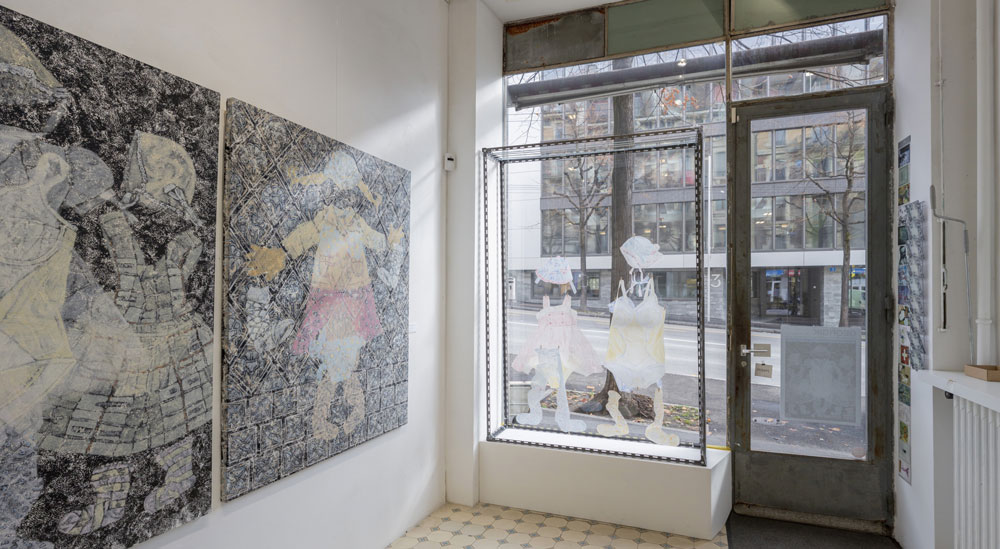
1- An exhibition of paintings where clothes painted on paper are superimposed one on top of the other; this paper so transparent disappears when it is glued on the canvas leaving only the paint to appear, a paint that has no skin, no support.
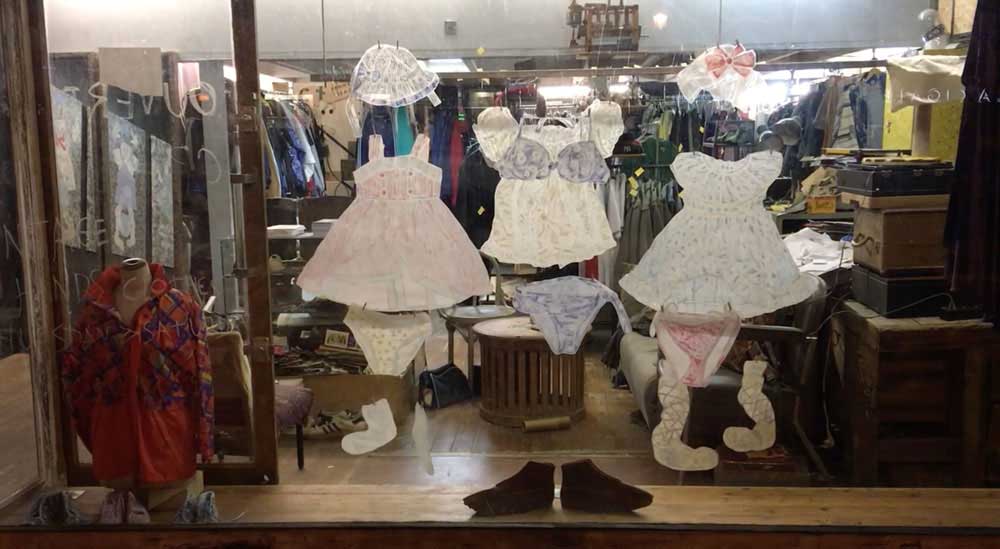
2- A floating installation where the same elements, paper clothes are hung in a small theatre and move with the wind in the physical space of the gallery.
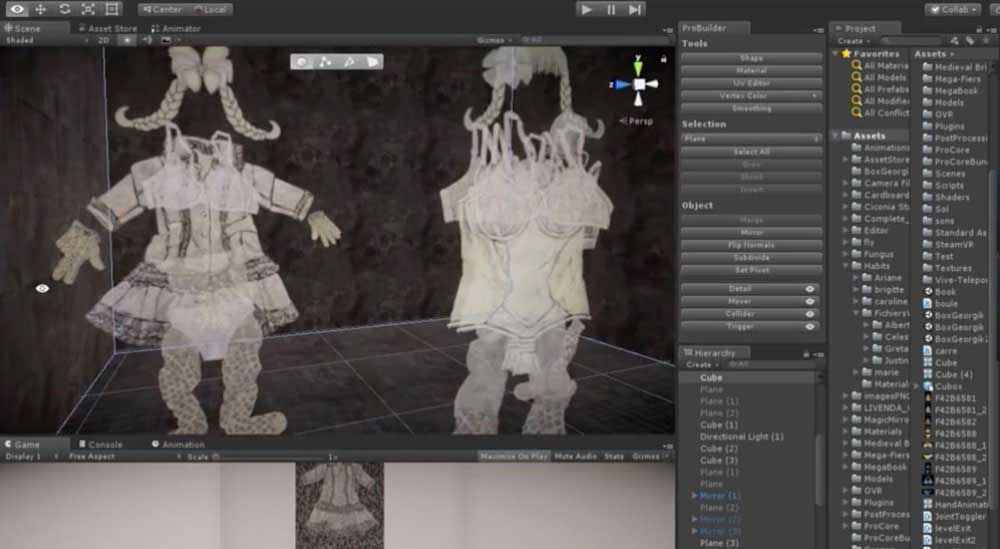
3- A VR installation, which is not a reconstruction of the 2D tables but uses the same spare parts that here, instead of being glued one on top of the other, come to life in the three-dimensional digital space of the VR. The spectator becomes a new plastic element in this device, able to interact with the other elements at will.
Georgik has long been interested in computer coding, from his first paintings on carbon paper, irons and typewriters to his early computer painting of the 1980s. Today, the game consists in moving from the large canvases painted in the gallery's physical space to their development in virtual reality.
"To reach the Invisibles, only one solution: put on the virtual reality mask."
Armed with a VR helmet, the spectator become a spectator-actor, equipped with hands-gloves of paper, hair or hats, enters the pool of the painting, become Invisible in its turn, plays with the other clothes, moves them, puts them on and interacts with the elements that populate the virtual space.
The characters
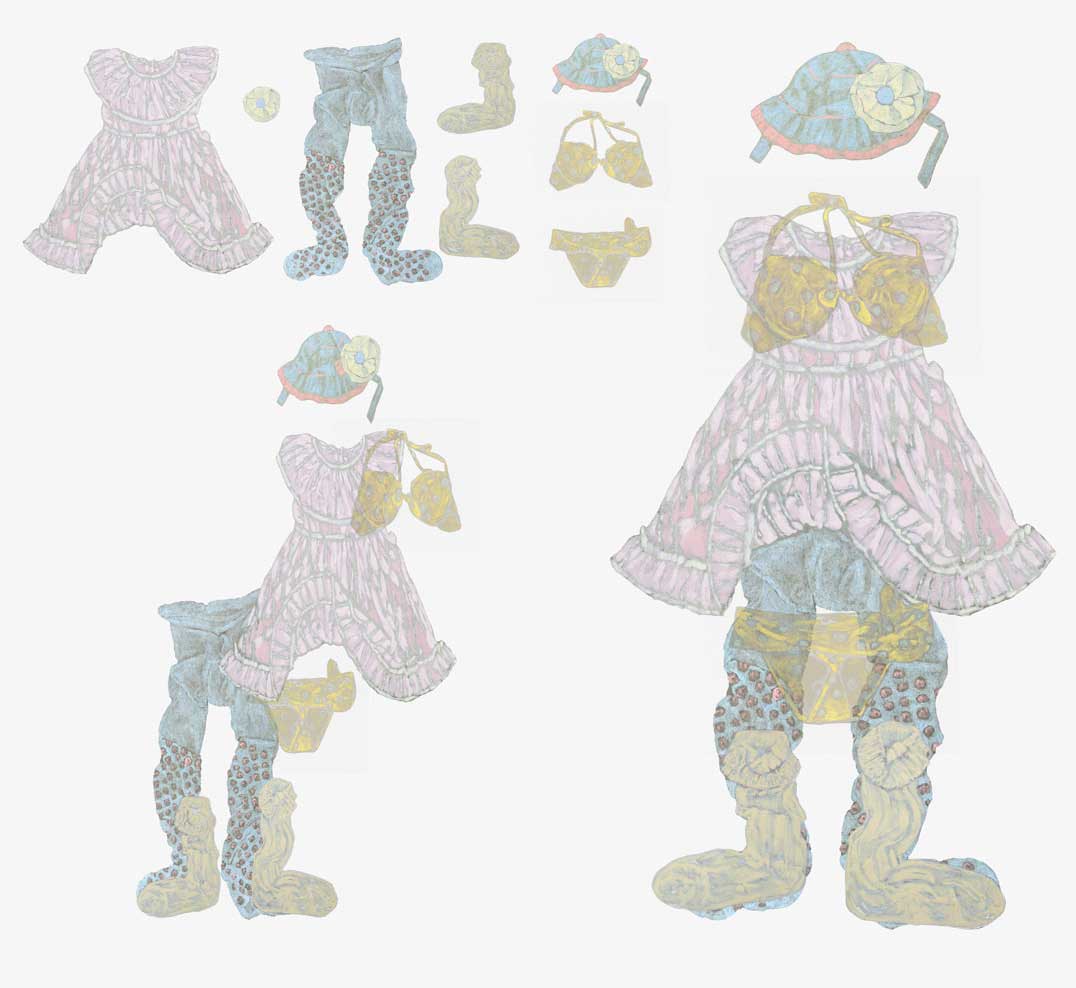
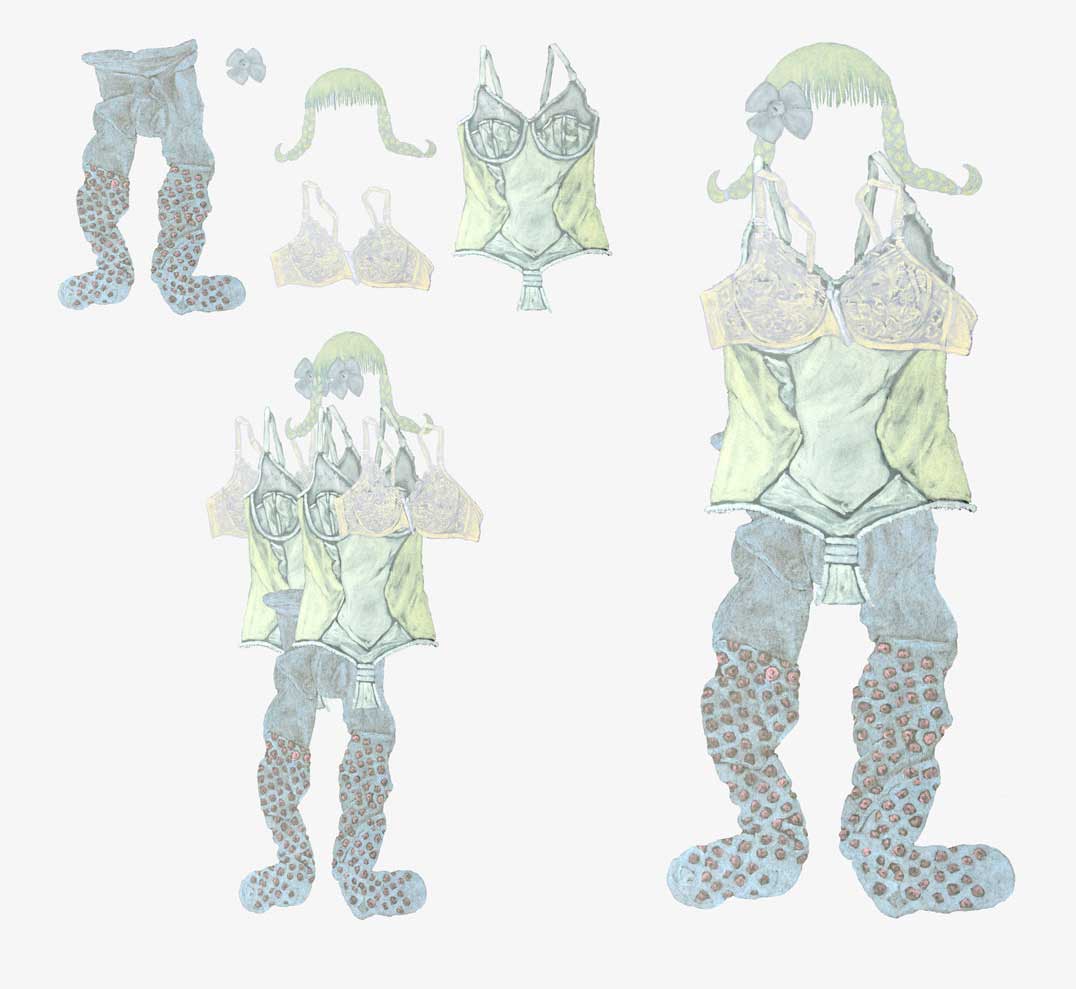
Les Invisibles is, this paper wardrobe, this reserve of spare parts,transparent peels stamped on the canvas of the exhibition's paintings,suspended from the small playful theatres, reduced to their digitalluminescence in the VR.
"They'll be there! Noisy, murmuring, evolving around you, audible only when you approach them, they attract you into their farandole."
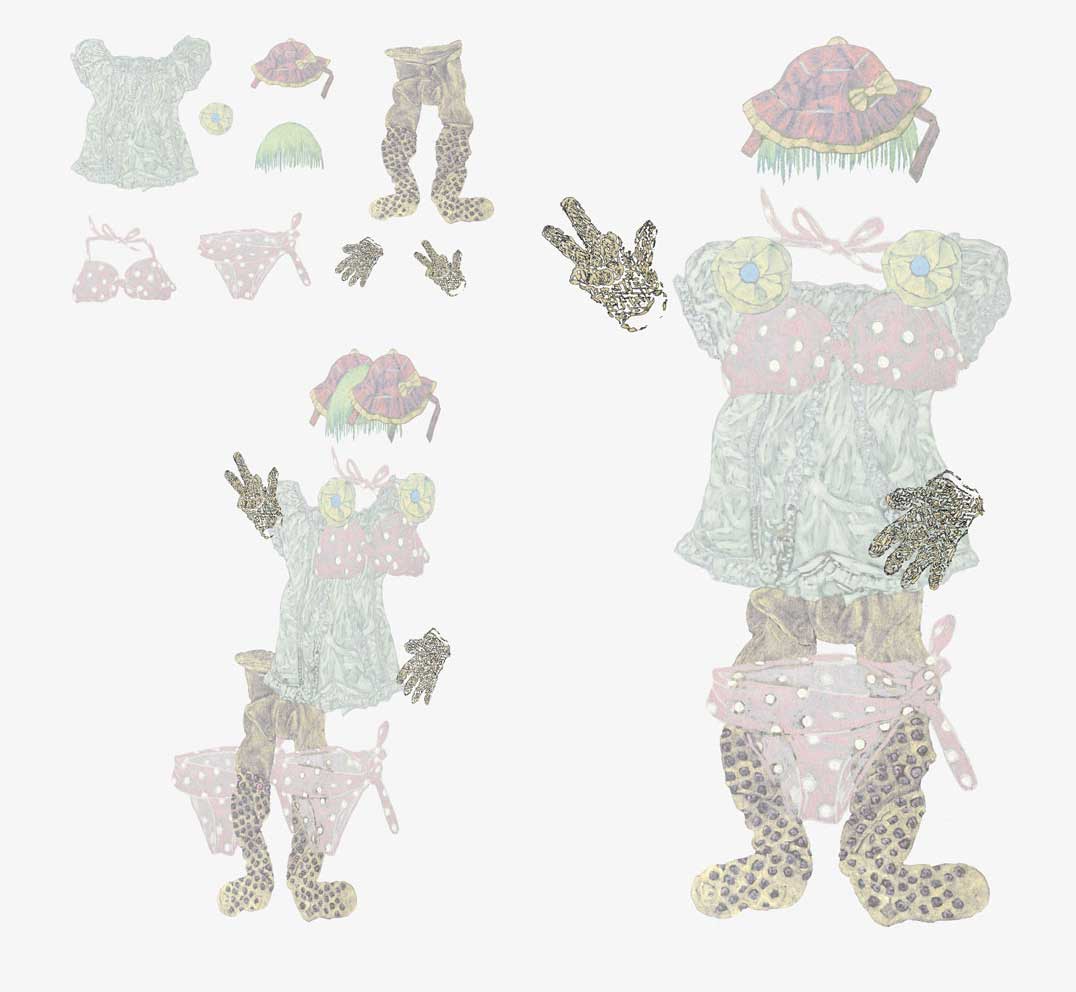
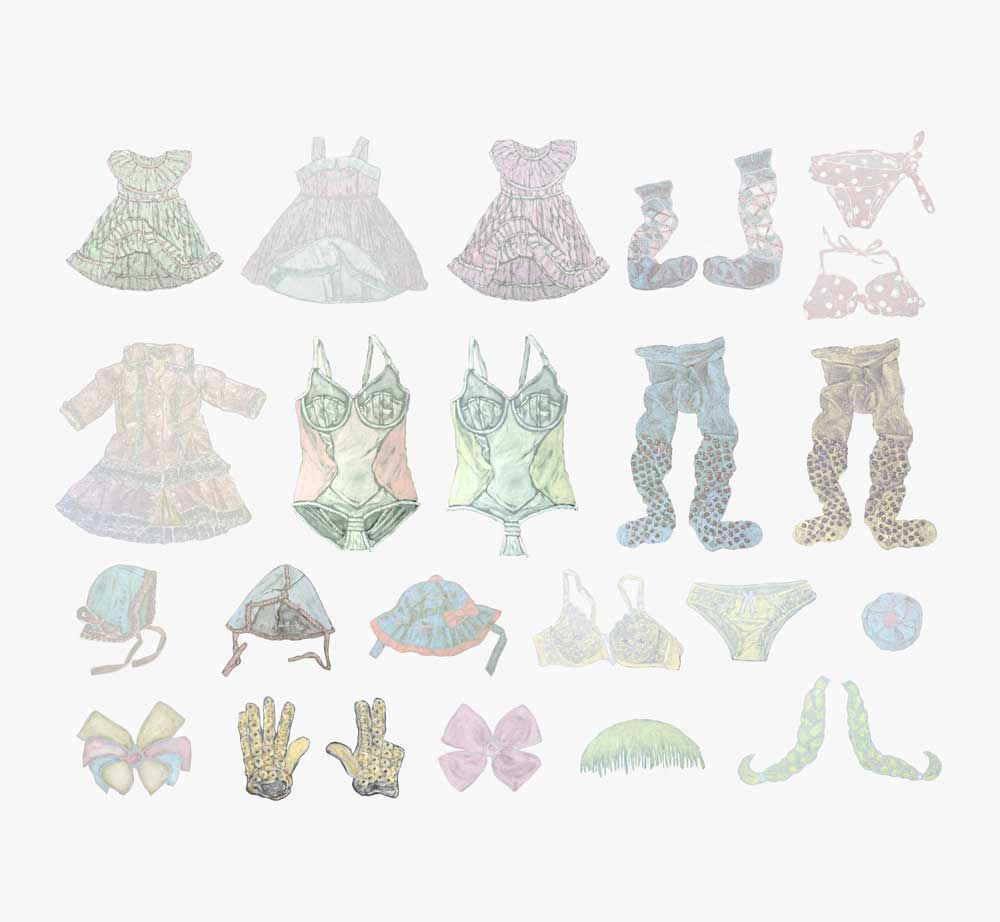
The environment
"It is no longer the parts of the painting that follow one another in a cinematographic order, but the characters who rotate, undergo rotations, fall in a spiral along new, off-centre axes, disregarding earthly coordinates and gravity."
Looking up to the ceiling, we feel this vertigo of the fall, placed under a glass floor, where huge bare feet of levitating girls sting and swirl towards us, while dogs in suspension trot and swirl, with waves of crows occasionally grabbing these panties or caps. Obviously, some half- virtual or gnawed clothing such as filters let through, porous membranes, some emotions rather than others.
The image is composed like a path notation, not really like a succession of poses but rather like a map of emotions, whose capricious meteorology torments and suffocates us. These juvenile female deities, vaguely perforated, in rags, shake in transparency, as if they reflected the energy of our vision to us but by turning it around: a memory, like an undergarment.
A work that opens "naturally » on the VR
Georgik has long insisted on "history", from his first carbon paper andiron paintings to his typewriter drawings. History is an adventure that allows you to encode functions and tell stories. With RV, history is constantly being invented and interacting.
Georgik
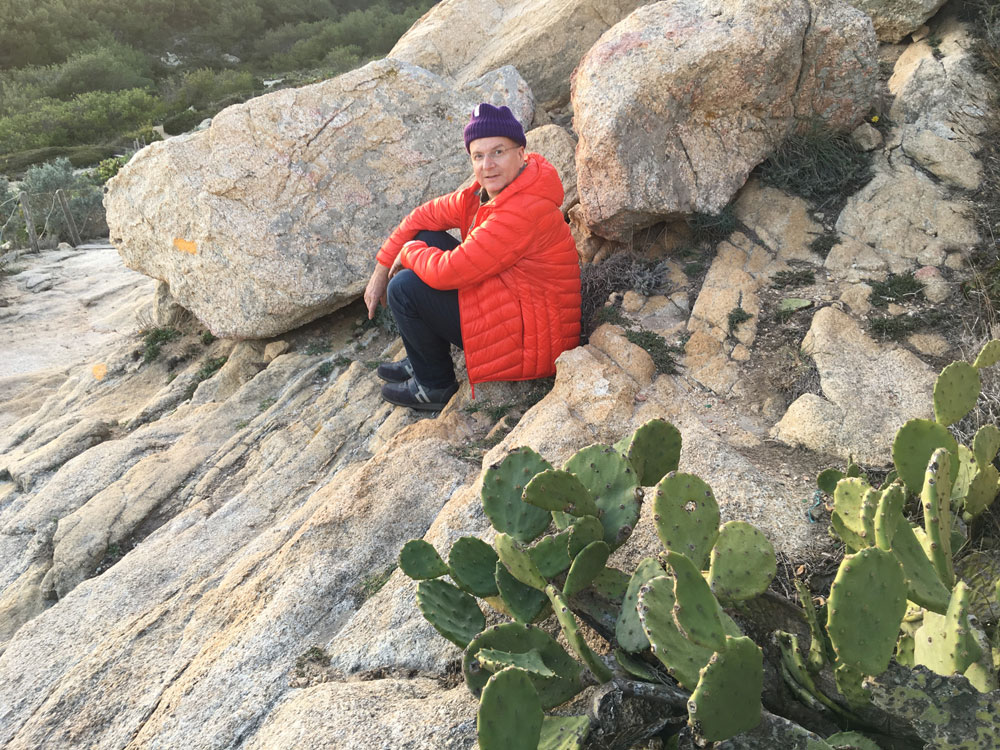
Georgik was born in 1957 in La Chaux-de-Fonds. He left Switzerland at the age of 17 for Paris, then New York, became interested in comics and published in the magazine Heavy-metal. Back in France, he devoted himself to painting, discovered computer science at the beginning of the 1980s and frequently combined mechanical and computer processes in his pictorial research.
Different series of his work are exhibited at the Centre Georges Pompidou in 1989 and 2009 on the occasion of the Daniel Cordier donation as well as at the Musée des Abattoirs in Toulouse. The Chave Gallery is dedicating a retrospective to him in 2006.He regularly exhibits in various Parisian galleries:
Philippe Gand Gallery - Frédéric Guislain Gallery - Béatrice Soulié Gallery - Hus Gallery.
In Switzerland, Georgik is represented by the Richterbuxtorf Gallery, with which the VR project was born.
Georgik was born in 1957 in La Chaux-de-Fonds. He left Switzerland at the age of 17 for Paris, then New York, became interested in comics and published in the magazine Heavy-metal. Back in France, he devoted himself to painting, discovered computer science at the beginning of the 1980s and frequently combined mechanical and computer processes in his pictorial research.
Different series of his work are exhibited at the Centre Georges Pompidou in 1989 and 2009 on the occasion of the Daniel Cordier donation as well as at the Musée des Abattoirs in Toulouse. The Chave Gallery is dedicating a retrospective to him in 2006. He regularly exhibits in various Parisian galleries.
In Switzerland, Georgik is represented by the Richterbuxtorf Gallery, with which the VR project was born.
Georgik & the VR magic team
Gilles Richter
Georgik
Régine Buxtorf
Anne Sauvagnargues
Carlos Abeijon Martinez
Gregory Flaxman
Ce projet a été produit et réalisé par:
Crédits
A realization of Georgik & the VRmagic team
A RichterBuxtorf production
The VR magic team :
Anne Sauvagnargues, Régine Buxtorf, Carlos Abeijon, Gilles Richter et Gregory Flaxman
Post-production and development :
y-en-a.com Sàrl, Lausanne
Voice-over : Régine Buxtorf, Denis Wermeille
VR Magic Team
To realize Les Invisibles VR, an entire interdisciplinary team has been set up around Georgik.
Anne Sauvagnargues, philosopher, painter, professor, art theorist and Gregory Flaxman director of Global Cinema Studies, associate professor of English literature, UNC (Chapel Hill) have contributed to this through their research and texts. Carlos Abeijon from y-en-a.com provided his technical skills as a GAME VR developer, helped by Max Roy (analyst programmer).
For more information,
please contact us.














